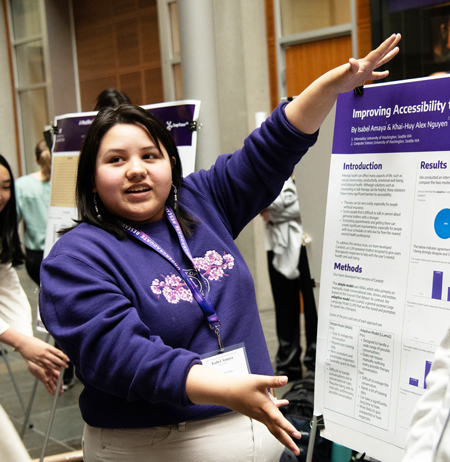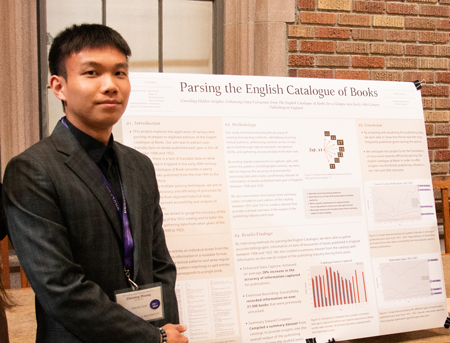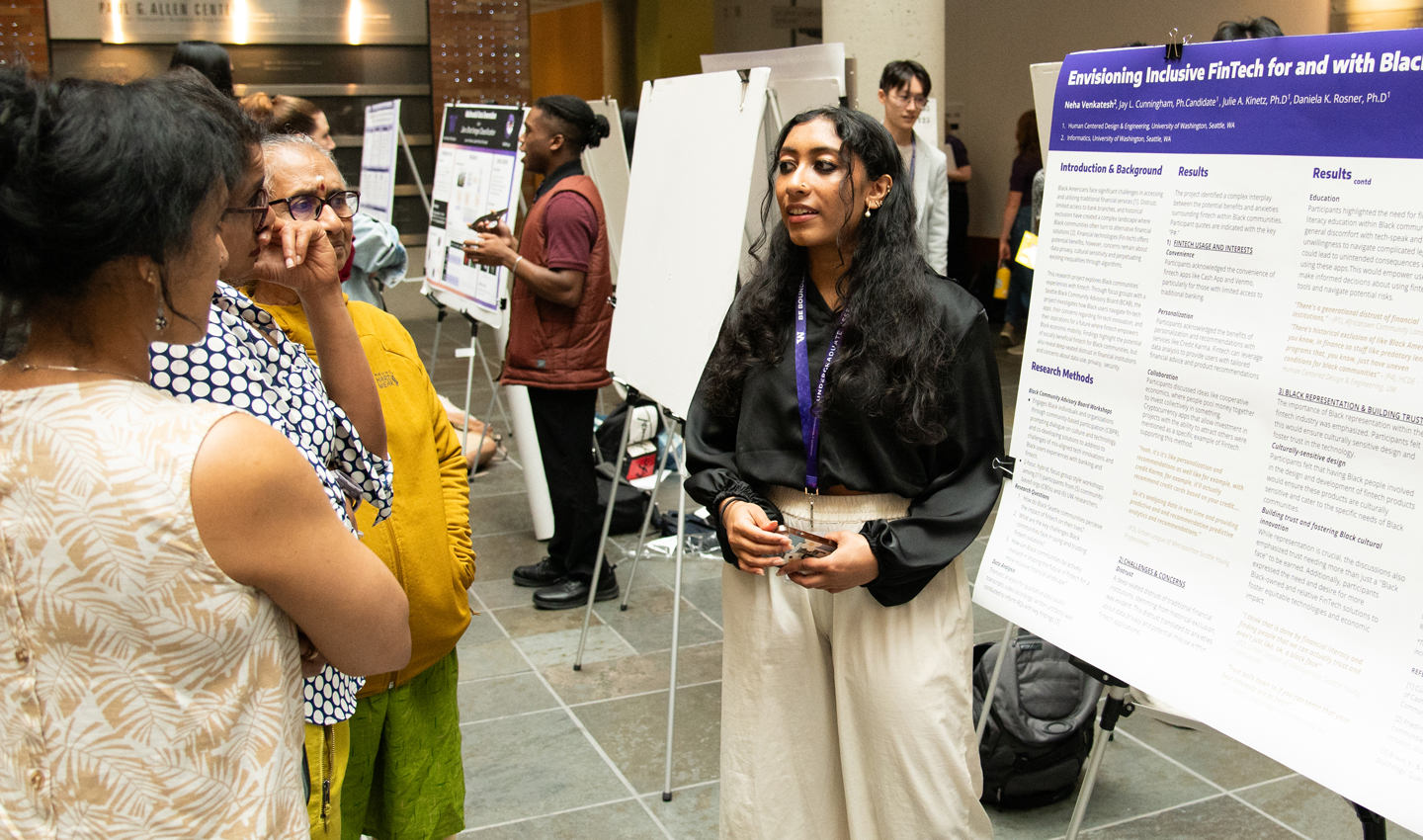
Thirteen Information School students presented their research at the 2024 Undergraduate Research Symposium on May 17. They were among more than 1,200 students from across the University of Washington who participated in oral presentations and poster displays.
One of the sessions, on “The Promise and Limits of Technology for Improving Health and Functioning,” included a poster presentation by first-year Informatics student Isabel Amaya and her group titled “iCare — A More Accessible Solution to Mental Health.” Amaya and her research group examined user comfort and challenges with the development of artificial intelligence therapists. They hope to apply their study to creating a live chatbot application that can understand mental health issues and provide relevant advice and suggestions to the user.
The same session also featured an oral presentation by senior Informatics student John Oh titled “Accessible Software Engineering Workspace for Neurodiverse Individuals.” With guidance from Associate Professor Hala Annabi, Oh created an actionable framework for developing accessible software engineering workspaces that accommodate neurodiverse individuals’ unique needs.

Senior Informatics student Zhiming Huang presented a poster, “Parsing the English Catalogue of Books,” from a directed research group he participated in.
“This entire process of research and working with my group was such a sweet experience,” said Huang. “I was able to enhance so many useful industry skills like data cleaning, which proved especially valuable in helping me secure my internship with Expedia by equipping me with the necessary data analysis skills to apply in the interview process.”
The research symposium also featured the following posters and oral presentations from Informatics students:
- Pooja Tharoli and Niyat Mehari, “Advancing Healthcare Equity: Exploring ConverSense’s Usability in Addressing Implicit Bias”
- Neha Venkatesh (pictured at top), “Co-Designing FinTech for Black Communities”
- Phyllis (Peng Yu) Chen, “Analyzing the Cultural Contexts of James Baldwin Tweets During the BLM Movement: 2013-2023”
- Amy Shanna Sun, “Design Research to Generate High-Fidelity Prototypes for Culturally-Inclusive, Relational and Responsible Indigenous E-Publications”
- Lilly Victoria (Lily) Jeffs and Sanaa Syed, “Navigating Normalcy: Designing Personal Health Visualizations for Pediatric Kidney Transplant Recipients and Caregivers
- Simardeep (Simar) Kaur, “Evaluating VirScan Data Quality at Sample and Batch Levels”
- Heidi Marie Manes and Daphni Ann George, “Making the Past Accessible Through Usability Testing: a UX Study on Interactive, Digital Historical Databases”
- Sheamin Kim, “Inhibition of Antibody-Mediated Entry By Anti-SARS-CoV-2 Antibodies”
- Drew Favors, “Accidental Archivists: YouTube Gameplay Content and Game Preservation”
